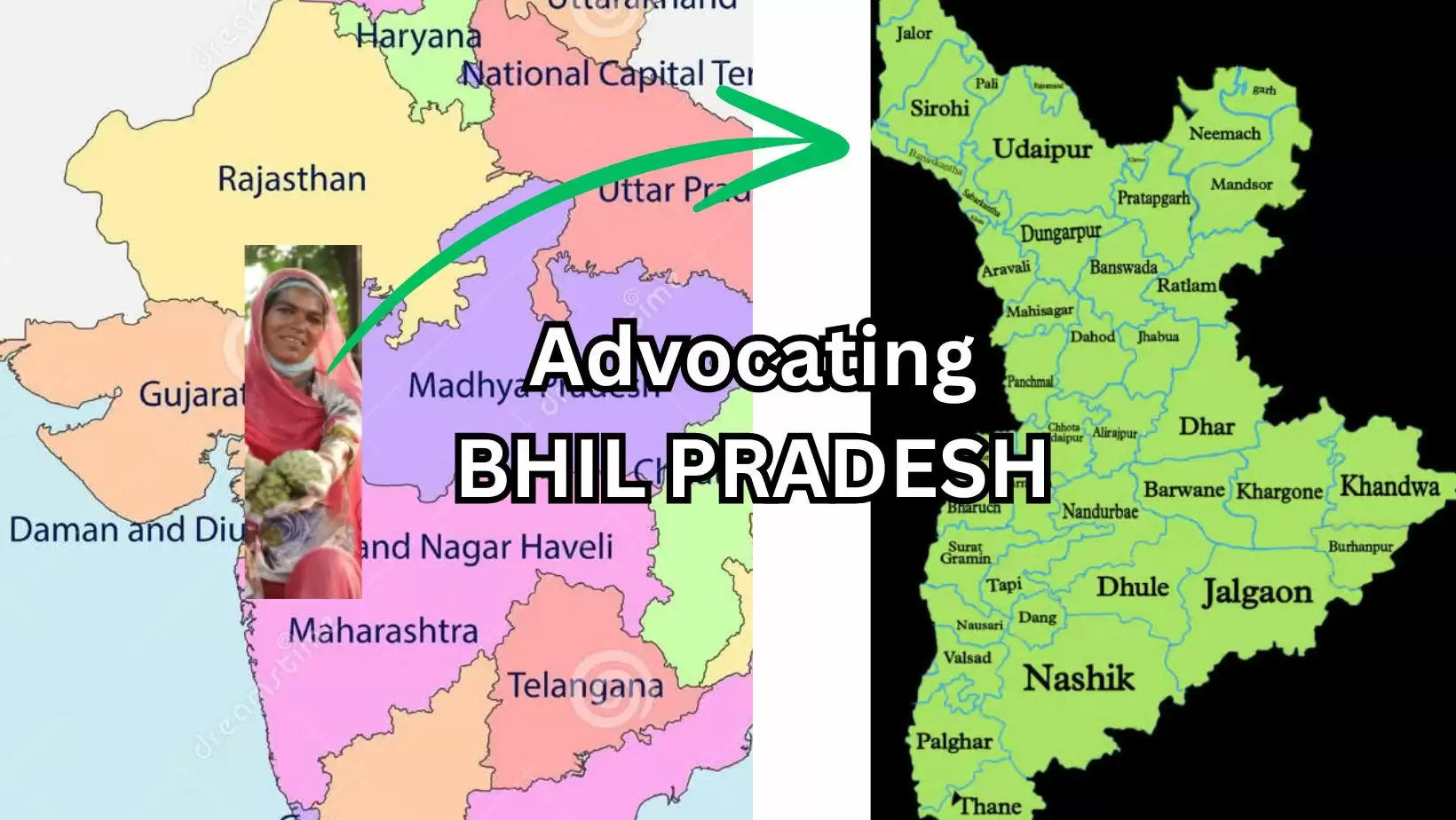Unity in Cultural Identity - Advocating the Creation of a Bhil Pradesh
The rally held at Banswara on Thursday, 18 July, served as a platform where a political proposal for the creation of a Bhil state was passed. This indicates formal backing and endorsement from leaders within the community and possibly from political representatives as well. The participation of Bhil leaders, MPs, and MLAs in the Maharally highlights significant political support for the proposal to create a separate state for the Bhil community.
As per the leaders from the Bhil community, the demand for a Bhil state (Bhil Pradesh) is rooted in the cultural, linguistic, and historical identity of the Bhil community. Like other communities that have states based on linguistic or ethnic lines (such as Gujarati-speaking Gujarat or Marathi-speaking Maharashtra), there is a perceived need for political representation that reflects the unique identity of the Bhil people.
Creating a new state within India involves a complex political process that typically requires widespread support, both among the community seeking statehood and at the national level. This includes discussions in state assemblies, parliamentary debates, and ultimately constitutional amendments if necessary.
While linguistic and cultural identity are valid grounds for state formation, administrative feasibility, economic viability, and ensuring the interests of all communities within the proposed state are also crucial considerations. The Bhil community would need to demonstrate not only their numerical strength but also the ability to govern effectively and sustainably.
India’s federal structure allows for states to be created or reorganized based on various factors, including linguistic and ethnic considerations. However, this process is not always straightforward and can be influenced by political, social, and economic factors.
Here are the key points from the Rally and the announcements made at Banswara on 18 July:
- Leaders emphasized their distinct cultural identity, asserting that they are not solely Hindus. This assertion likely underscores the unique cultural and possibly tribal identity of the Bhil community, distinct from mainstream Hinduism.
-
The presence of MPs and MLAs from various parties suggests cross-party support or at least interest in the demand for a Bhil state. Political participation in such rallies is crucial as it indicates that the issue is being taken seriously within legislative circles.
-
The passage of a political proposal at such a gathering signifies a step forward in the advocacy for a Bhil state. It signals the community's readiness to pursue this demand politically and underscores their aspirations for greater autonomy and representation.
-
The Maharally and its outcomes highlight the Bhil community's organized effort to assert their cultural identity and pursue their political aspirations through formal channels. The involvement of political figures indicates that the issue may continue to be discussed and advocated for in legislative forums.
Political leaders like Gehlot expressing support for the idea of a Bhil state indicates that the issue is being heard at relevant levels in the government. However, moving from expression of support to actual policy implementation involves a detailed assessment of all relevant factors.
While the demand for a Bhil state is based on legitimate cultural and linguistic grounds, its realization depends on navigating a complex political and administrative process within the framework of India’s federal structure. Continuous dialogue, advocacy, and engagement with all stakeholders, including the central and state governments, will be crucial in advancing this demand effectively.
MLA Thawarchand Meena's statement highlights the issue of tribal identity and the quest for political representation based on cultural and linguistic similarities among the Bhil community across adjoining states.
Thawarchand Meena pointed out that despite Bhils sharing commonalities in language, culture, and customs across Gujarat, Maharashtra, Madhya Pradesh, and Rajasthan, they are divided administratively into different states. This division contrasts with the unity they feel in terms of their cultural identity.
Thawarchand questions, "Why the Bhil community cannot have their own state if their language, culture, and customs are uniform across these regions. This query is rooted in the desire for political empowerment and self-governance that reflects their unique identity. Creating a new state in India involves constitutional processes that consider factors such as population, administrative feasibility, economic viability, and regional aspirations. The demand for a Bhil state would need to navigate these complexities while ensuring it aligns with the broader principles of federalism and governance in India. The formation of states in India historically has been influenced by linguistic, cultural, and sometimes ethnic considerations. The Bhil community's demand for a separate state can be seen in this context, as they seek to consolidate their identity and assert their rights within the Indian federal structure."
Thawarchand Meena's statement underscores the need for a nuanced approach to address the aspirations of the Bhil community for self-determination and political representation. It calls for a deeper examination of their cultural unity across state boundaries and the possibilities within India's democratic framework to accommodate such aspirations.
While BAP leader and MP Rajkumar Roat's statement underscores their strong advocacy for the creation of a Bhil state,where this demand gained significant traction. As he said "Bharat Adivasi Party (BAP) is actively pushing for the creation of a separate state for the Bhil community. This indicates a focused effort to address the political and administrative needs of the Bhil people based on their cultural and linguistic identity".
Roat further said that following the mega rally, a delegation plans to meet with the President and the Prime Minister to formally present the proposal for a Bhil state. This strategic move aims to garner high-level support and attention for their cause at the national level.
To join us on Facebook Click Here and Subscribe to UdaipurTimes Broadcast channels on GoogleNews | Telegram | Signal



